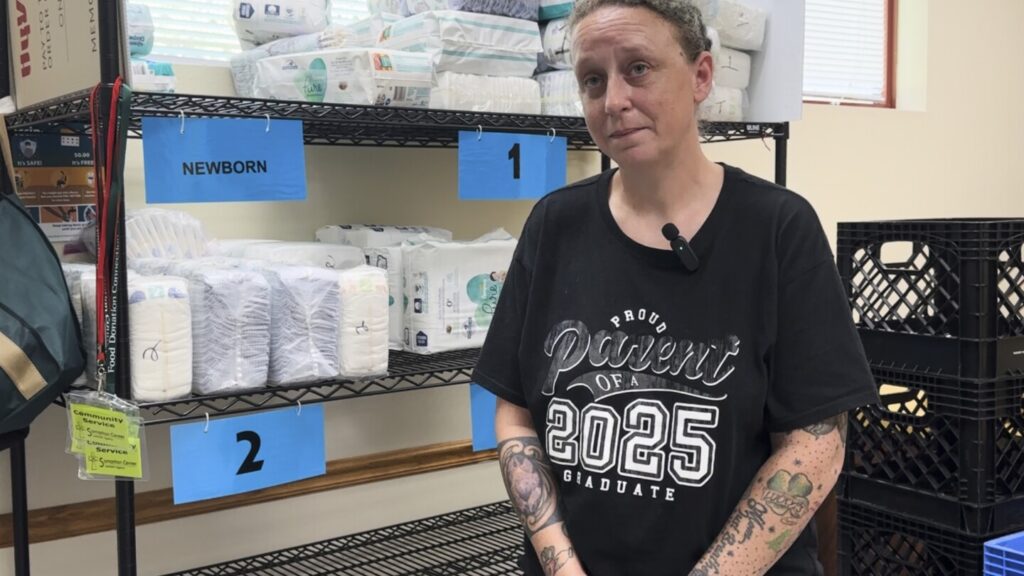
JEFFERSON CITY, Mo. (AP) — A sweeping tax and spending bill, recently approved by Congress and now awaiting President Donald Trump’s signature, could significantly alter the landscape of social safety nets in the United States. Proponents argue the legislation will foster personal responsibility by introducing stricter work requirements for programs like Medicaid and food aid, while critics warn it could destabilize the lives of millions.
The bill, which secured final congressional approval on Thursday, has ignited a national debate about the future of federal benefits. At the heart of the controversy are new work requirements that could affect millions of Americans who rely on these programs for survival.
Work Requirements and Their Impact
Under the proposed legislation, individuals aged 19 to 64 would need to work, attend school, or perform at least 80 hours of community service monthly to enroll and remain on Medicaid. This requirement would apply to people in 40 states that expanded Medicaid under the Affordable Care Act since 2014. Notably, states like Texas and Florida, which did not expand the program, would be exempt.
Similarly, the Supplemental Nutrition Assistance Program (SNAP) would mandate work for adults up to age 65, extending the current requirement that applies to those aged 18 to 55. Exceptions would exist, including for parents caring for children under 14. However, most Medicaid recipients already meet these criteria or qualify for exemptions.
Voices from the Community
The proposed changes have sparked concern among beneficiaries. Theresa Gibbs, a former school bus driver from Jefferson City, Missouri, who is enrolled in both Medicaid and SNAP, expressed her determination to find employment despite likely qualifying for an exemption due to her three young children. “I don’t think people should just live off the state if they’re perfectly capable to work,” she stated.
Conversely, Amanda Hinton from St. Martins, Missouri, who works part-time and suffers from fibromyalgia, expressed anxiety about meeting the requirements consistently. “I’m panicked. I have chronic health conditions that are not curable, and I rely on my medication to help me just get through the day,” she explained.
Brittany Phillips of Greensboro, North Carolina, emphasized the importance of Medicaid for everyone, regardless of their capacity to work. “I do believe that Medicaid should be available for everyone regardless of who they are,” she said.
Challenges Beyond Work Requirements
The bill’s implications extend beyond work mandates. The Congressional Budget Office estimates that 11.8 million fewer people could have health insurance by 2034 due to changes, including the exclusion of non-citizens not legally residing in the U.S. Permanently.
“Every additional paper someone has to submit separately from their application, you lose people,” said Deborah Steinberg, a senior health policy analyst at the Legal Action Center.
Julia Bennker, who runs an in-home daycare in Eau Claire, Wisconsin, shared her struggles with existing Medicaid paperwork. She experienced a lapse in coverage due to alleged late submissions, despite her belief that she met the deadlines.
Hannah Wesolowski, chief advocacy officer for the National Alliance on Mental Illness, highlighted the complexity of determining exemptions for conditions like mental illness or substance use disorder, which are not currently tracked in Medicaid systems.
State-Level Challenges and Financial Strain
State agencies face the daunting task of adapting to these changes while grappling with reduced federal funding. The legislation mandates that states cover more administrative costs for SNAP starting in 2027 and, for the first time, potentially a portion of food assistance benefits by 2028. Additionally, states must implement Medicaid work requirements by 2027.
“It will be a very tight and difficult timeline for many of these states,” said Sophia Tripoli, senior health policy director at Families USA.
Julieanne Taylor, a lawyer at the Charlotte Center for Legal Advocacy, warned of potential disasters as states struggle with increased verification demands. “To add more to them, it’s going to be a disaster,” she cautioned.
Potential Consequences for Rural Hospitals and Planned Parenthood
The bill could also jeopardize rural hospitals by capping taxes that states impose on healthcare providers to boost Medicaid funding. The nonprofit KFF estimates a $155 billion decrease in Medicaid spending in rural areas over the next decade.
R. Kyle Kramer, CEO of Day Kimball Hospital in Connecticut, expressed concern, stating, “It’s going to lead to a lot of closures.”
Additionally, the legislation would cut federal funding to Planned Parenthood for non-abortion services, potentially leading to the closure of one-third of its clinics nationwide. This could disproportionately affect states where abortion remains legal.
As the bill awaits President Trump’s decision, its potential impact on the social safety net remains a topic of intense scrutiny and debate. The coming months will reveal how these changes unfold and their broader implications for American society.







